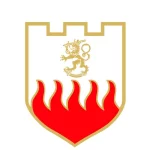Bachelor of Rescue Services | 240 credits | 4 years
Study to become a multi-skilled expert in safety, security, and rescue services.
The Bachelor of Rescue Services degree provides the capabilities required in supervisory, management, and expert tasks requiring strong professional competence in an organisation operating in the rescue and safety sector. The credit volume of the Bachelor’s degree in internal security is 240 credits, and the programme lasts for four years when completed as full-time studies.
The focus areas of the degree programme are emergency service leadership skills, risk and safety management, accident prevention, and preparation. The degree also provides the skills needed for good administration and human resource management.
Contact teaching takes place at the Emergency Services Academy in Kuopio, where the instruction, accommodation, and meals will be provided for the student free of charge. The Bachelor of Rescue Services degree programme is organised collaboratively with the Police University College: the students will be enrolled in the Police University College but the teaching will be provided at the Emergency Services Academy.
There are two implementation alternatives for the programme: the full-time studies alternative (AMKN) and the hybrid learning alternative (AMKA). Applicants for the hybrid learning programme must have completed a Sub-officer degree. The hybrid learning programme lasts about three years.
Fire officer job description
Those who have completed the Bachelor’s degree work in management positions at rescue departments and in expert tasks in rescue operations, accident prevention, or civil defence. The official titles of fire officers include e.g. Chief Executive Officer of Emergency Services Department, Risk Management Officer, Regional Senior Executive Fire Officer, Fire Inspector, Head of Preparedness, Senior Executive Fire Officer, Executive Fire Officer, and Station Officer. Completion of the degree also confers eligibility to apply to positions as Head of Emergency Response Centre.
Rescue officers may also be employed in rescue sector administration or education, in the management tasks of emergency response centres, or in the security service sector.
The officers of rescue departments are expected to be able to work in both managerial and expert roles. All officer positions emphasise interaction management, future competence, and planning and development skills, comprehensive safety thinking, and international competence. Fire officers are required to be able to diagnose and solve problems in several different ways and to work well under pressure, and they must have good communication and learning skills.
Admission criteria
The applicant must have turned 18 before the start of the studies.
For the full-time studies alternative of the Bachelor of Rescue Services degree programme, the student must have completed either a general upper secondary school syllabus, matriculation examination or a vocational upper secondary qualification, a further vocational qualification, or a specialist vocational qualification. Alternatively, a police degree in accordance with previously valid regulations or a foreign qualification that confers eligibility for higher education studies.
Higher education degrees cannot be used for the application; instead, the applicant must choose a previous upper secondary qualification.Applicants for the hybrid learning implementation of the Bachelor of Rescue Services degree programme must have completed an old fire officer’s Bachelor of Engineering degree, a Sub-officer degree or a corresponding prior degree. You cannot apply for the programme through discretionary selection.
Applicants must have a valid category B driving licence at the start of the programme.
Integrity and reliability are required of those selected for rescue sector education and training.
In addition, they must be of unimpeachable character and must not have any interests that would endanger the proper and independent performance of rescue sector duties.
The applicant must have the state of health and functional capacity required for the proper performance of rescue service duties.
The applicant does not use and has not used drugs as referred to in section 3, subsection 1, paragraph 5 of the Narcotics Act (373/2008) for purposes other than medicinal.
Why become a fire officer?
• Focus on managerial work and safety and security management
• The work is demanding and carries a lot of responsibility
• Good employment opportunities
(in both rescue departments and the security service sector)
• Average monthly salary approx. EUR 4,000–5,000
(NB: variation by position)
The Bachelor of Rescue Services degree provides capabilities for the supervisory, management, and expert tasks requiring strong, advanced professional competence in an organisation operating in the rescue service and safety sector.
Watch the video on the Bachelor’s degree
Content of studies
The Bachelor of Rescue Services degree consists of basic studies, common and optional vocational studies, elective studies, practical work training, and a thesis.
More detailed course descriptions are outlined in the curriculum.
Seuraa: @pelastusopisto #päällystötutkinto
Vietimme tänään valmistujaisjuhlaa, jossa 170 opiskelijaa sai tutkintotodistuksen. Paljon onnea kaikille valmistuneille!
Vi firade examen idag, där 170 studerande fick sitt examensbetyg. Stort grattis till alla nyexaminerade studenter!
Lue lisää osoitteesta: www.pelastusopisto.fi/tapahtumat/pelastusopistosta-19-12-2025-valmistuneet-tutkinto-opiskelijat/
#pelastusopisto #räddningsinstitutet #pelastaja #pelastajatutkinto #hätäkeskuspäivystäjä #hätäkeskuspäivystäjätutkinto #alipäällystö #alipäällystötutkinto #päällystötutkinto #pelastusalanpäällystötutkinto #valmistujaisjuhla #onnea

Päällystökurssi N24:n opinnot on tältä vuodelta paketissa. Viimeiset viikot meni joukkueen johtamisen käytännön kokeiden parissa ja CBRNE-tilanteissa harjoitusalueella. Lisäksi pääsimme kuuntelemaan muiden viranomaisten luentoja heidän tehtäväkentästään viranomaisyhteistyön opintojaksolla.
Samaan aikaan aloittaneet pelastajakurssit ja häkekurssi valmistuvat tänään, mutta N24 jatkaa joululoman jälkeen opintoja. Kurssimme onnittelee valmistuvia ja toivottaa turvallisia työvuosia!
Kristian & Julius / AMKN24
#AMKN24
#pelastusopisto
#päällystötutkinto
#räddningsinstitutet
#emergencyservicesacademyfinland

Osastomme houkutteli tosi mukavasti väkeä @studiamessut💥 Virtuaalisammutus ja letkuhaaste keräsivät runsaasti innokkaita kokeilijoita, ja sammutusvarusteiden testaaminen onnistui opiskelijoidemme opastuksella. Kävijät pääsivät lisäksi tutustumaan sammutusajoneuvon ja ambulanssin varusteisiin. Mukana osastolla oli myös @hatakeskuslaitos.
Lämmin kiitos kaikille vierailijoille👋
#pelastusopisto #studia2025 #studiamessut #pelastajatutkinto #hätäkeskuspäivystäjätutkinto #alipäällystötutkinto #päällystötutkinto

Olemme mukana Studia 2025 -messuilla Helsingissä 25.–26. marraskuuta🔥
@studiamessut on Suomen suurin nuorille suunnattu vuosittainen opiskelu- ja uratapahtuma.
Löydät meidät viranomaisalueelta osastolta 5p49🧭
✅ Esillä sammutusauto ja ambulanssi 🚒🚑
✅ Osallistu aktiviteetteihin💥
✅ Kokeile virtuaalisammutusta🧯
✅ Hae tietoa tutkintokoulutuksista 📚
Opiskelijoidemme ja henkilöstön lisäksi osastolla on myös Hätäkeskuslaitoksen edustajia🔷
#studiamessut #studia2025 #pelastusopisto #pelastajatutkinto #hätäkeskuspäivystäjätutkinto #alipäällystötutkinto #päällystötutkinto

N24 on syksyn aikana syventänyt osaamista vaarallisten aineiden parissa. Vahvana teemana syksyn aikana ovat olleet myös palofysiikan mittauskokeet ja pelastusjoukkueen johtaminen. Seuraavaksi kurssilla on edessä pelastusjoukkueen johtamisen käytännön kokeet. Muutama viikko mennään vielä opistolla läsnätunneilla kunnes siirrytään etäilemään.
Kristian & Julius / AMKN24
#AMKN24
#pelastusopisto
#päällystötutkinto
#räddningsinstitutet
#emergencyservicesacademyfinland

Olimme mukana Turvaa ja taitoa -tapahtumassa Kotkassa 3.10. yhdessä @kymenpelastus sekä muiden viranomaisten kanssa🤝
Esittelypisteellämme vierailijat pääsivät tutustumaan koulutusmahdollisuuksiin sekä testaamaan aktiviteetteja. Opiskelijamme osallistui myös uratarinoiden kerrontaan.
Kiitos kaikille päivään osallistujille🙌
#pelastusopisto #pelastajatutkinto #päällystötutkinto #hätäkeskuspäivystäjätutkinto #kymenpelastuslaitos #pelastusala #turvaajataitoa #xamk
📸: Kymenlaakson pelastuslaitos

N24 päällystökurssi on aloittanut toisen vuoden opiskelut etänä sekä paikan päällä. Alkusyksyn teemana muun muassa ensihoitoa ja pelastusjoukkueen johtamista.
Mukavaa alkanutta syksyä!
Kristian & Julius / AMKN24
#AMKN24
#pelastusopisto
#päällystötutkinto
#räddningsinstitutet
#emergencyservicesacademyfinland

Olimme mukana varusmiesten opintomessuilla Panssariprikaatissa Parolassa 12.-13.8. yhteistyössä @khpela kanssa. Varusmiehiä vieraili mukavasti molempina päivinä ja kiinnostus pelastusalaa kohtaan oli ilahduttavan suurta – kiitos kaikille juttusille pysähtyneille! 🙌
#Pelastusopisto #pelastajatutkinto #alipäällystötutkinto #päällystötutkinto #hätäkeskuspäivystäjätutkinto #pelastusala #pelastuslaitos #khpela

Find out more
Student Affairs Office
Customer service:
Mon–Thu 8–14, Fri 8–13.
The Student Affairs Office is located in Building A, to the right of the entrance hall.
Degree programmes
Pirjo Paldanius
Student Affairs Secretary
Tel. 0295 453 490
tutkintokoulutus@pelastusopisto.fi



